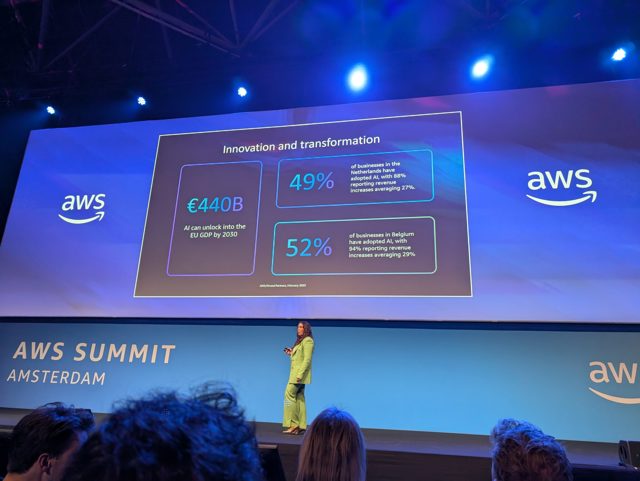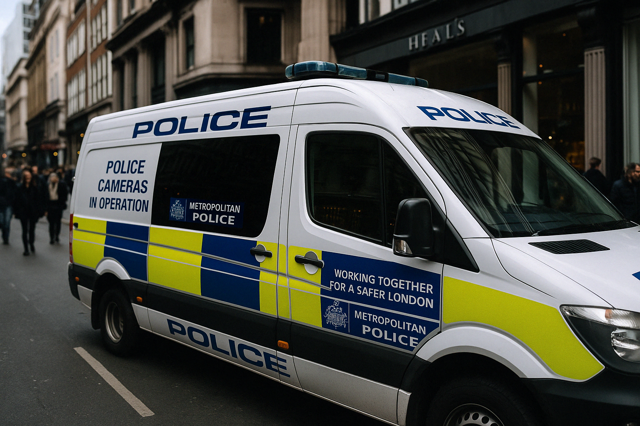< Back to news



10 July 2024
Netherlands ranks #1 in the new Global Index on Responsible AI
The Global Index on Responsible AI (GIRAI) has recently launched, ranking the Netherlands at number one, emphasizing the country's leadership in the responsible use of artificial intelligence. This recognition underscores the thriving AI community in the Netherlands and highlights the necessity of international cooperation to ensure AI is deployed and used responsibly.
Dutch Leadership in Responsible AI
According to the GIRAI, the Netherlands achieved a high score of 86.16, demonstrating its influence in advancing international collaboration to bridge the AI divide and implement robust legal frameworks addressing AI and human rights. The GIRAI is a comprehensive study that evaluates the progress of responsible AI practices across 138 countries. It covers 19 thematic areas grouped into three clusters: Human Rights and AI, Responsible AI Governance, and Responsible AI Capacities. Over 1,800 questions were posed to local researchers, leading to the collection of more than 2 million data points, meticulously analyzed by scientists and organizations. The Index assesses each area based on three pillars of the responsible AI ecosystem: government frameworks, government actions, and non-state actors' initiatives.
According to the GIRAI, the Netherlands achieved a high score of 86.16, demonstrating its influence in advancing international collaboration to bridge the AI divide and implement robust legal frameworks addressing AI and human rights. The GIRAI is a comprehensive study that evaluates the progress of responsible AI practices across 138 countries. It covers 19 thematic areas grouped into three clusters: Human Rights and AI, Responsible AI Governance, and Responsible AI Capacities. Over 1,800 questions were posed to local researchers, leading to the collection of more than 2 million data points, meticulously analyzed by scientists and organizations. The Index assesses each area based on three pillars of the responsible AI ecosystem: government frameworks, government actions, and non-state actors' initiatives.
Key Findings for AI's Future
The GIRAI report underscores the critical role of international cooperation in deploying and using AI responsibly, which is essential for enhancing the safety, security, and reliability of current AI systems. Despite existing safeguards for workers in AI-driven economies, universities and civil society must collaborate to advance reliable AI and drive global progress. The report reveals that while the Netherlands scored 86.16, a significant portion of the world lags behind, with 67% of countries scoring below 25 and 25% scoring between 25 and 50. This disparity means nearly 6 billion people live in countries lacking adequate AI-related human rights protections. Key areas needing improvement include gender equality, labor protections, the right to work, public participation and awareness, public sector skills development, competition authorities, and children's rights.
The GIRAI report underscores the critical role of international cooperation in deploying and using AI responsibly, which is essential for enhancing the safety, security, and reliability of current AI systems. Despite existing safeguards for workers in AI-driven economies, universities and civil society must collaborate to advance reliable AI and drive global progress. The report reveals that while the Netherlands scored 86.16, a significant portion of the world lags behind, with 67% of countries scoring below 25 and 25% scoring between 25 and 50. This disparity means nearly 6 billion people live in countries lacking adequate AI-related human rights protections. Key areas needing improvement include gender equality, labor protections, the right to work, public participation and awareness, public sector skills development, competition authorities, and children's rights.
Amsterdam's Thriving AI Community
Amsterdam is rapidly emerging as a major hub for AI and technology, spanning various sectors from climate tech to life and health sciences. Amsterdam AI, a coalition of partners, drives progress through pioneering research, innovative education, and creative, multidisciplinary collaborations. The city attracts significant global attention and investment, such as €100 million for its Climate Tech Portfolio Fund II and €28 million for CuspAI's CO2-binding materials research. The University of Amsterdam (UvA) is also contributing to this dynamic AI community with its research into AI and sustainable molecules and materials. AiSalon, a global collective of AI innovators, recently launched in Amsterdam, fostering a vibrant ecosystem for AI and tech applications in the city.
Amsterdam is rapidly emerging as a major hub for AI and technology, spanning various sectors from climate tech to life and health sciences. Amsterdam AI, a coalition of partners, drives progress through pioneering research, innovative education, and creative, multidisciplinary collaborations. The city attracts significant global attention and investment, such as €100 million for its Climate Tech Portfolio Fund II and €28 million for CuspAI's CO2-binding materials research. The University of Amsterdam (UvA) is also contributing to this dynamic AI community with its research into AI and sustainable molecules and materials. AiSalon, a global collective of AI innovators, recently launched in Amsterdam, fostering a vibrant ecosystem for AI and tech applications in the city.
For more information on setting up your business in Amsterdam, contact Amsterdam inbusiness, the official foreign investment agency of the Amsterdam Metropolitan Area. Let's work together to advance responsible AI!
Published by IAmsterdam.
Vergelijkbaar >
Similar news items

April 16, 2025
AWS: Dutch businesses are adopting AI faster than the European average
New research from AWS shows that Dutch businesses are rapidly adopting AI—at a rate of one new implementation every four minutes, well ahead of the European average.
read more >

April 16, 2025
Submit your nomination for the Dutch Applied AI Award 2025
Do you know or develop an innovative AI application? Submit it now for the 2025 Dutch Applied AI Award, presented at the Computable Awards.
read more >

April 16, 2025
UK government tests AI to predict murders
The UK government is developing an AI system that could predict who is most likely to commit a serious crime. Critics call the project dangerous and discriminatory.
read more >